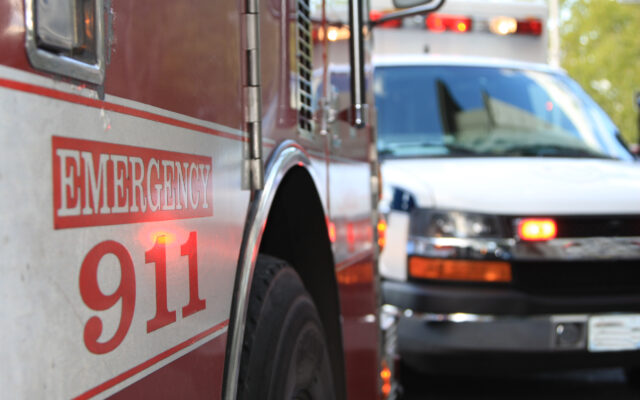CDC reports decline in vaccine effectiveness, prompting booster decision

▶ Watch Video: COVID boosters to be advised for many Americans amid surge of Delta variant
New data being released Wednesday by the Centers for Disease Control and Prevention warns of a “significant decline” in vaccine effectiveness against infection from COVID-19 in nursing home residents, as the highly contagious Delta variant of the virus causes a spike in hospitalizations among mostly unvaccinated Americans.
The release came as the Biden administration says it is preparing to offer booster shots for all Americans who got the Pfizer or Moderna vaccines, eight months after their second dose, beginning the week of September 20.
“Based on our latest assessment, the current protection against severe disease, hospitalization, and death could diminish in the months ahead, especially among those who are at higher risk or were vaccinated during the earlier phases of the vaccination rollout,” top federal health officials said in a joint statement on Wednesday.
The research, to be released as three studies in the agency’s Morbidity and Mortality Weekly Report, shows the vaccines still appear to remain effective at preventing severe illness and hospitalization for most people.
In one study through July, doctors reported “sustained high protection from severe COVID-19 requiring hospitalization” for at least six months after vaccination, analyzing data from a network of hospitals across 18 states.
But when it comes to preventing infection from COVID-19, CDC researchers in another study turned up evidence suggesting immunity might be starting to decline among some of the most vulnerable Americans who were vaccinated earliest in the nationwide rollout: nursing home residents.
In nursing homes, the effectiveness of the Pfizer and Moderna vaccines dropped to 53.1% during the surge in Delta variant cases this summer, the CDC calculated, down from 74.7%.
“Additional doses of COVID-19 vaccine might be considered for nursing home and long-term care facility residents,” wrote the study’s authors.
A third study found the effectiveness of the vaccines against infection also appeared to wane this summer across all adults.
Analyzing data from millions of fully vaccinated adults across health databases in New York, researchers found that overall vaccine effectiveness appeared to drop to 79.8% through late July.
Effectiveness against hospitalizations appeared “relatively stable” as the Delta variant surged to make up more than 80% of cases in the region, the study’s authors reported. But overall effectiveness from the vaccines made by Pfizer, Moderna, and Johnson & Johnson against any diagnosed infection declined, in a finding “consistent with those observed in other countries.”
Data from Israel, where authorities are already allowing booster doses as Delta variant cases multiplied, indicated a potential drop in effectiveness among its oldest residents.
“That’s the same thing we’re starting to see in the U.S. data, although right now, it still as if our vaccine protection is working really well,” National Institutes of Health Director Francis Collins told “The Hugh Hewitt Show” on Tuesday.
The CDC now estimates that the Delta variant in the U.S. makes up some 99% of circulating SARS-CoV-2, the virus that causes COVID-19. Cases and hospitalizations are reaching record highs not seen since the winter surge, with the agency recently warning that spread of the virus was now “high” in all but two states.
While the share of vaccinated patients in hospitals has appeared to climb in recent months, Biden administration officials had previously said they were waiting to see convincing data demonstrating the need for a booster shot for most fully vaccinated people.
Officials urged Americans to wait for official recommendations, as the CDC disclosed that more than 1 million people have already been tracked obtaining at least one unauthorized additional dose.
However, federal health officials have also publicly acknowledged in recent weeks that a growing body of evidence suggests booster doses could be inevitable for at least some adults, beyond the immunocompromised people first authorized for additional doses last week.
Vaccine manufacturers have also ramped up efforts to seek regulatory approval for more doses of their shots. The CDC must wait for the Food and Drug Administration to first authorize booster doses before it can formally recommend them.
Pfizer recently announced it had submitted initial data demonstrating the safety and efficacy of a third dose to the FDA, with more data expected from its larger Phase 3 clinical trials. Moderna also plans to send data on its proposed booster after completing trials of differently sized doses.
But the World Health Organization is concerned about vaccine equity.
“Shouldn’t everyone get two doses before we start giving three?” one of the FDA’s top officials, Dr. Peter Marks, asked clinicians on a recent webinar with the Infectious Diseases Society of America.
Global health officials have called for “rich countries” to delay booster programs through at least the end of next month, “to enable at least 10% of the population of every country to be vaccinated.”
“But what if it turns out that three is what you actually need to get the kind of durable immunity against COVID-19,” said Marks. “And if we don’t do that, six months from now, or eight months from now, when we won’t be talking about Delta variant anymore, we’ll be on Mu or some other letter of the Greek alphabet.”



